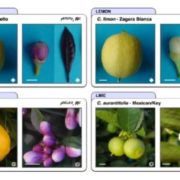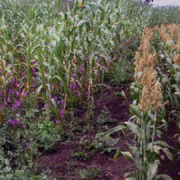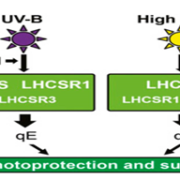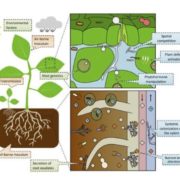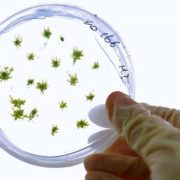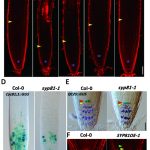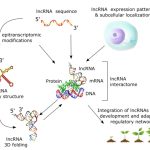Demethylation of methyl salicylate to salicylic acid in tomato fruit
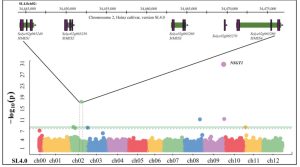 This is an interesting paper that grabbed my attention from the very first line: “Tomatoes are the second most valuable crop in the USA”. Of course, a key trait in these important fruits is their flavor, something the Harry Klee team at the University of Florida have been studying for years. Here, Frick et al. investigated the conversion of methyl salicylate (negatively correlated with good flavor) to salicylate in tomato. They used a GWAS approach to identify a region associated with methyl salicylate abundance that includes four genes encoding methyl esterases, which they named SlMES1-4 (I misread this a SIMES to rhyme with limes, but it the second letter is a lower-case l, for Solanum lycopersicum MES). Several lines of evidence including CRISPR editing implicated SlMES1 as having a major role in the demethylation of methyl salicylate in tomato fruit, with the other three genes having smaller effects. Heterologous expression confirmed SlMES1 as having methyl esterase activity against methyl salicylate. This work provides a new tool for breeders to decrease a negative component of flavor, but it is also interesting because methyl salicylate is an important defense compound in plants, related to and more mobile than salicylic acid (SA). Can genetics tease apart the the flavor-defense trade off? (Summary by Mary Williams @PlantTeaching) Plant Physiol. 10.1093/plphys/kiac509
This is an interesting paper that grabbed my attention from the very first line: “Tomatoes are the second most valuable crop in the USA”. Of course, a key trait in these important fruits is their flavor, something the Harry Klee team at the University of Florida have been studying for years. Here, Frick et al. investigated the conversion of methyl salicylate (negatively correlated with good flavor) to salicylate in tomato. They used a GWAS approach to identify a region associated with methyl salicylate abundance that includes four genes encoding methyl esterases, which they named SlMES1-4 (I misread this a SIMES to rhyme with limes, but it the second letter is a lower-case l, for Solanum lycopersicum MES). Several lines of evidence including CRISPR editing implicated SlMES1 as having a major role in the demethylation of methyl salicylate in tomato fruit, with the other three genes having smaller effects. Heterologous expression confirmed SlMES1 as having methyl esterase activity against methyl salicylate. This work provides a new tool for breeders to decrease a negative component of flavor, but it is also interesting because methyl salicylate is an important defense compound in plants, related to and more mobile than salicylic acid (SA). Can genetics tease apart the the flavor-defense trade off? (Summary by Mary Williams @PlantTeaching) Plant Physiol. 10.1093/plphys/kiac509


